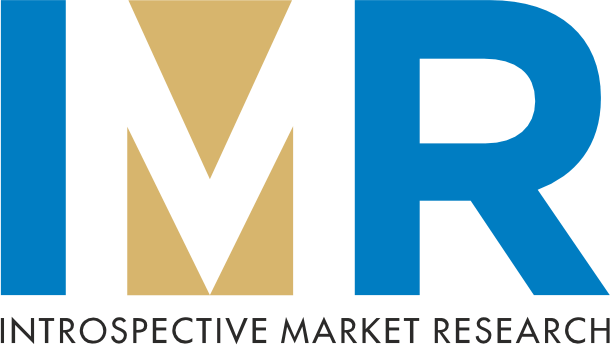Market Overview:
Cosmetic Serum Market Size Was Valued at USD 3.68 Billion in 2022 and is Projected to Reach USD 5.44 Billion by 2030, Growing at a CAGR of 5.0% From 2023-2030.
Cosmetic serum is a concentrated product based on water or oil. Serums contain 10 times more biologically active ingredients than cream making it more effective and quicker in reaction time. Cosmetic serum is in high demand due to health & facial consciousness among people, unhealthy diets, and increased pollution. Cosmetic serums moisturize, rejuvenate, nourish, and soothe skin making them an essential cosmetic bag product. Innovation in the skin serum segment has made age-defying products that target dark spots, and wrinkles, and reduce pores. The global cosmetic serum market has experienced significant growth and is expected to grow considerably in the next few years.
Top Key Players Covered in The Cosmetic Serum Market:
- L'Oréal (France)
- Estée Lauder Companies Inc. (United States)
- Shiseido Co., Ltd. (Japan)
- Johnson & Johnson (US)
- Procter & Gamble (US)
- Unilever (United Kingdom/Netherlands)
- Coty Inc. (US)
- Revlon, Inc. (US)
- Amorepacific Corporation (South Korea)
- Kao Corporation (Japan)
- Avon Products, Inc. (United Kingdom)
- Beiersdorf AG (Germany)
- Mary Kay Inc. (US)
- Colgate-Palmolive Company (US), and Other Major Players
Market Dynamics and Factors:
The Cosmetic Serum market is driven by rising consumer demand for advanced skincare solutions and a growing awareness of the benefits of serums. Increasing concerns about skin aging, and pollution, and a desire for effective, targeted skincare contribute to the market's growth. Innovations in product formulations, incorporating ingredients like hyaluronic acid, antioxidants, and peptides, are driving the development of high-performance serums. Opportunities in the market stem from the expanding beauty and wellness industry, with consumers seeking specialized skincare products. E-commerce platforms provide a convenient avenue for product accessibility, fostering market growth. Additionally, the trend towards natural and organic ingredients presents opportunities for companies focusing on clean and sustainable formulations. However, the Cosmetic Serum market faces restraints such as regulatory challenges related to product claims and safety standards. Economic uncertainties and price sensitivity among consumers may impact purchasing decisions. Moreover, intense market competition poses challenges for new entrants.
The Cosmetic Serum Market Report Highlight:
- By type, the Skin Whitening Serum segment in the cosmetic serum market is witnessing significant growth due to increased consumer demand for products addressing hyperpigmentation, dark spots, and uneven skin tone. Driven by a cultural preference for fair skin in some regions and a global trend toward achieving a flawless complexion, consumers seek effective and safe solutions.
- By ingredient type, the Vitamin C Serums segment in the cosmetic serum market is experiencing rapid growth due to its proven skin benefits. Vitamin C, a potent antioxidant, helps brighten skin, reduce hyperpigmentation, and boost collagen production, promoting a youthful complexion. Consumers increasingly seek products addressing skin concerns while incorporating skincare into their daily routines.
- By region, North America is Expected to Dominate the Market Over the Forecast period. North American consumers are highly conscious of skincare and beauty products. There is a strong culture of skincare awareness and a willingness to invest in high-quality products to achieve and maintain healthy, youthful-looking skin. The region, particularly the United States, is home to numerous skincare companies, research institutions, and laboratories that continually innovate in the skincare field. This innovation leads to the development of cutting-edge serum formulations with advanced ingredients.
Key Industry Development:
- In February 2023, L'Oréal acquired Pattern Beauty, a Black-owned haircare brand. Pattern Beauty is known for its natural hair care products, including serums, conditioners, and shampoos. This acquisition is a strategic move for L'Oréal, as it allows the company to expand its reach into the Black hair care market.
- In February 2023, Estée Lauder launched its new Advanced Night Repair Synchronized Recovery Serum. This serum is said to help reduce the appearance of dark spots and uneven skin tone by up to 50% in just 4 weeks.
The Cosmetic Serum Market Segmentation:
By Type
- Anti-aging Serum
- Skin Whitening Serum
- Anti-acne Serum
By Ingredient Type
- Vitamin C Serums
- Hyaluronic Acid Serums
- Retinol Serums
- Peptide Serums
- Antioxidant Serums
By Gender
- Men
- Women
By Distribution Channel
- Hospitals
- Supermarket
- Dermatology Clinics
- Drug Stores
- Retail Stores
- Online Pharmacies
For this report, Introspective Market Research has segmented the Cosmetic Serum Market Bin Market based on region:
Regional Outlook (Revenue in USD Million; Volume in Units, 2023-2030)
North America
- The U.S.
- Canada
- Mexico
Eastern Europe
- Russia
- Bulgaria
- The Czech Republic
- Hungary
- Poland
- Romania
- Rest of Eastern Europe
Western Europe
- Germany
- UK
- France
- Netherlands
- Italy
- Spain
- Rest of Western Europe
Asia Pacific
- China
- India
- Japan
- Singapore
- Australia
- New-Zealand
- Rest of APAC
Middle East & Africa
- Turkey
- Saudi Arabia
- Qatar
- UAE
- Israel
- South Africa
South America
- Brazil
- Argentina
- Rest of SA





